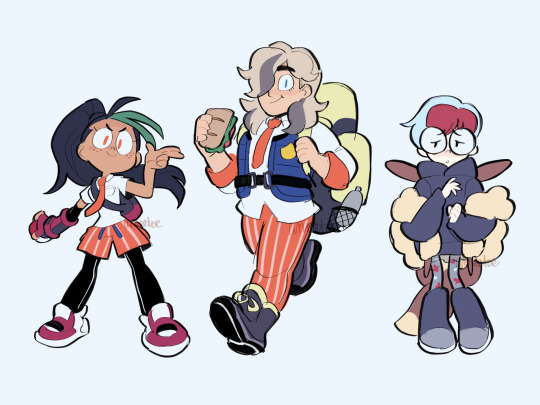Text

Mio here~
[TWITTER][COMMISSION][KO-FI][PATREON][PORTFOLIO]
13 notes
·
View notes
Text

this is the funniest thing I’ve read in my LIFE
175K notes
·
View notes
Photo
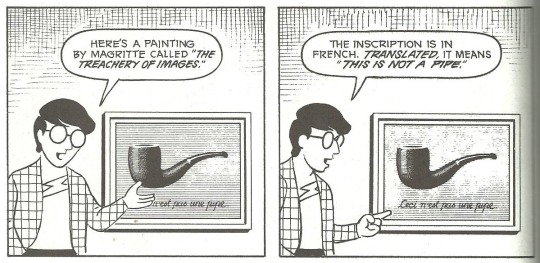
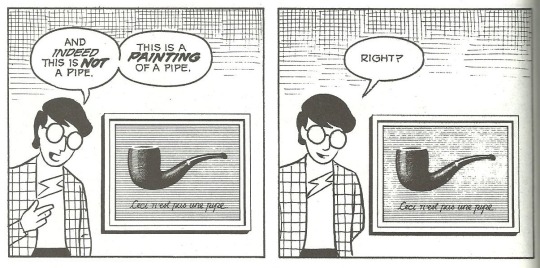
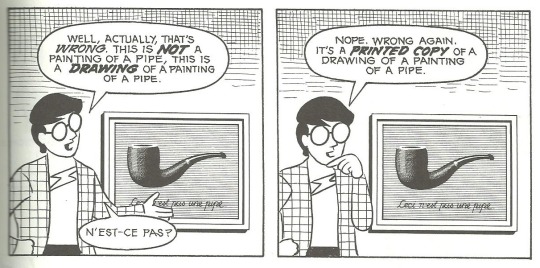
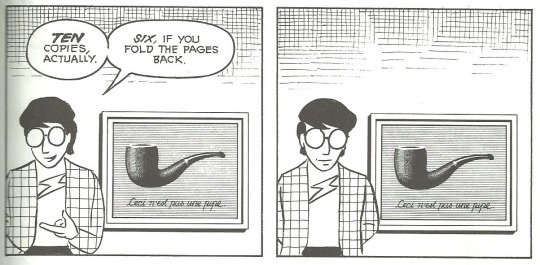
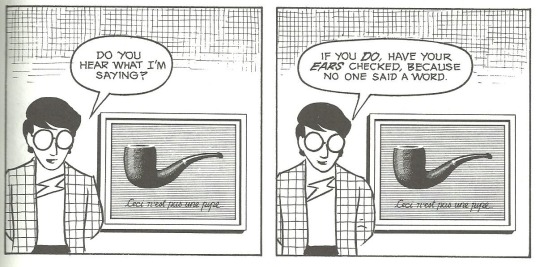
Scott McCloud’s incomparable “Understanding Comics”.
I swear you can open this book to any page and it’s amazing.
(ps it’s actually a digital image of a printed copy of a drawing of a painting of a pipe)
61K notes
·
View notes
Text



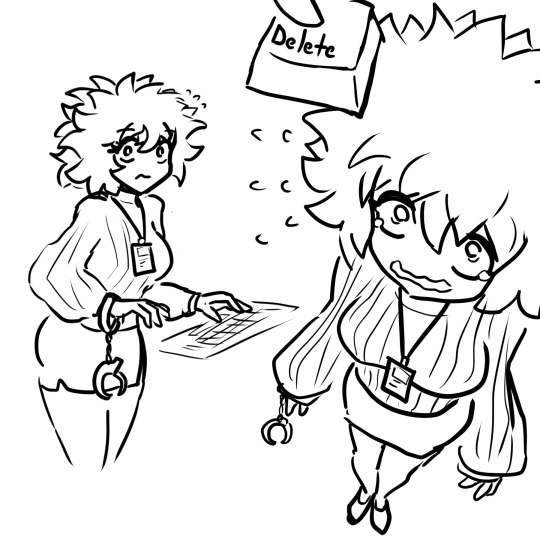
some early war-o-matic concept work.
the premise has changed a bit and the AI girl "COs" are being redesigned to fit into either a laborer or corporate aesthetic.
only ENJI and SKIP are unchanged since their country was already an industrial cesspool.
bottom left, NEON is now NYON. she is functionally the same, except now wears her company's mascot suit while streaming, and she also talks like a palico now.
19 notes
·
View notes
Note
Honestly it's weird that roleplaying as we know it evolved from historical wargaming.
Like for example DBA rules contain some suggestions for running campaigns with narrative and "propaganda" so I wouldn't say that it's something incompatible, and 0E looks way more like wargames than say PbtA games do, but storytelling games were a feature of artistic salons for way longer and they appear much closer to roleplaying than rulesets for reenacting ancient battles on tabletop.
Salon games didn't have skill checks but neither did wargames and it's strange that nobody came up with simplistic skill checks to add uncertainty and realism to the game
I think the line is a lot clearer when the role of dice and rules in tabletop roleplaying games is correctly understood.
"Uncertainty" and "realism" are, at best, secondary to what the dice are actually doing. Even most tabletop RPGs get it wrong when they try to explain themselves – they'll talk about the rules as something to fall back on to prevent schoolyard arguments (i.e., "yes I did!/no you didn't!") from derailing the story, when in fact it's the exact opposite.
If we look at freeform roleplaying as an illustrative parallel, we see that, while newly formed groups may in fact fall to bickering when a consensus can't be reached about what ought to happen next, mature and well-established groups tend instead to fall prey to excessive consensus-seeking: the impulse to always find an outcome that isn't necessarily one which everybody at the table can be happy with, but at the very least one which everybody at the table can agree is reasonable – and that's a lot more constraining than one might think.
In this sense, the role of picking up the dice isn't to build consensus, but to break it – to allow for the possibility of outcomes which nobody at the table wanted or expected. It's the "well, this is happening now" factor that prevents the table's dynamic from ossifying into endless consensus-seeking about what reasonably ought to happen next.
Looking to the history of wargames, this is precisely the innovation they bring to the table. Early historical wargames tended to be diceless affairs which decided outcomes by deferring to the judgment of a referee or other subject matter expert, but the use of randomisers increasingly came to be favoured because referees would tend to favour the most reasonable course, precluding upsets and rendering the outcomes of entire battles a foregone conclusion. This goes all the way back to the roots of tabletop wargaming – people were literally having "rules versus rulings" arguments two hundred years ago!
(This isn't the only facet of tabletop roleplaying culture which has its roots in wargaming culure, of course. For example, you can draw a direct line from the preoccupation of early tabletop RPGs with punishing the use of out-of-character knowledge to historical wargaming's gentleperson's agreement to refrain from making decisions based on information that one's side's commanders couldn't possibly have possessed when re-creating historical battles.)
To be clear, I don't necessary disagree that salon games could have yielded something like modern tabletop RPGs. However, first they'd have had to arrive at the paired insights that a. excessive consensus-seeking is poison to building an interesting narrative; and b. randomisers can be used to force the breaking of consensus, and historical wargames had a substantial head start because they'd figured all that out a century earlier.
930 notes
·
View notes
Text
centaur but with a retractable human body. i.e. the human body can be pulled inside the horse body until just their head sticks out. They then can wear a fake horse head to hide among the wild horses.
13 notes
·
View notes
Text
an anime flashback that you think is trying to explain why the character loves this tricket so much because their father gave it the them, only to realize the flashback is actually trying to say that the character loves their father BECAUSE their father gave them a nice trinket.
8 notes
·
View notes
Text
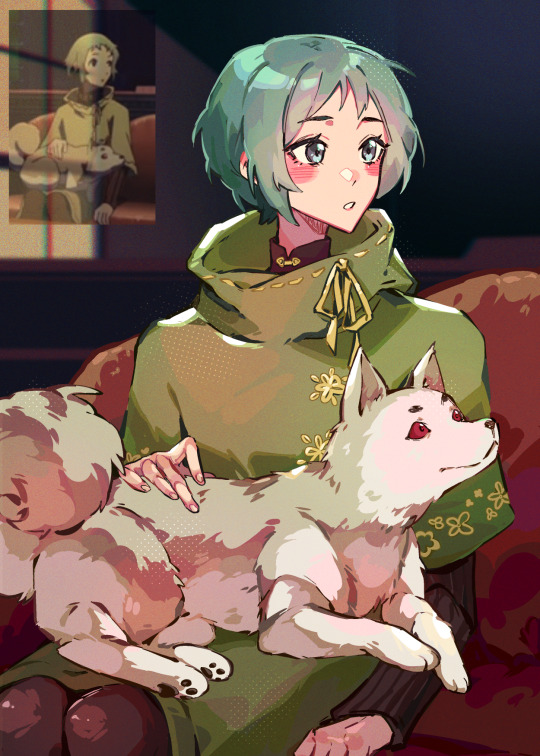
redrew the most important frame from the p3 movies
466 notes
·
View notes










